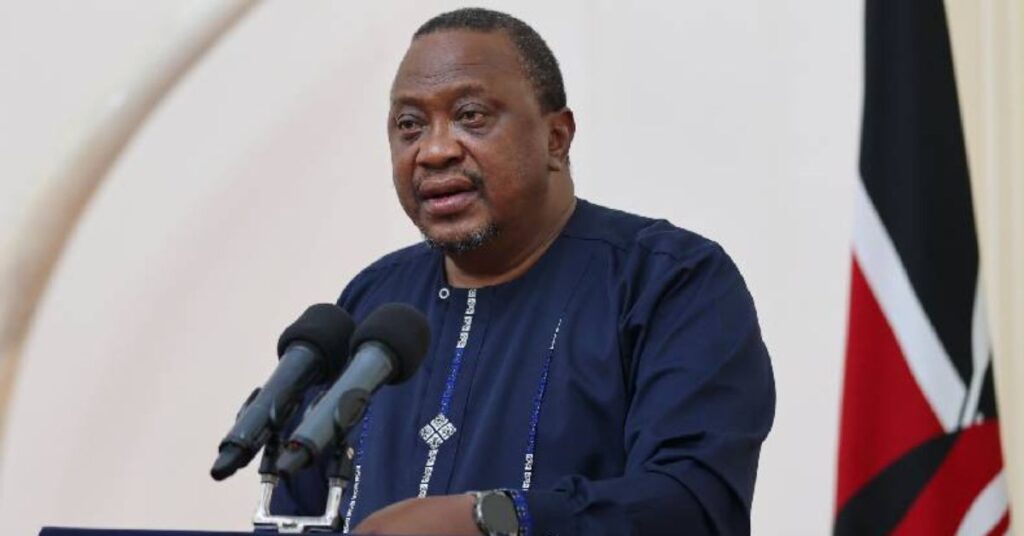Kenya’s Parliament Calls for Review of KSh10bn Spent in Kenyatta’s Final Days
A parliamentary committee has called for a forensic audit of the KSh10 billion that was spent during former President Uhuru Kenyatta’s final days in office.
The National Assembly’s Public Petitions Committee, acting on a petition by Stephen Mutoro, Secretary-General of the Consumer Federation of Kenya (Cofek), is urging Auditor-General Nancy Gathungu to scrutinize specific transactions made under Article 223 of the Constitution during the transition period before the August 2022 General Election.
One of the primary concerns revolves around KSh6,091,140,702, which was used to buy out Helios Investment’s stake in Telkom Kenya. This transaction, made just three days before the election, has stirred significant controversy.
While the funds were withdrawn under the constitutional provision that allows the government to spend without prior parliamentary approval in emergencies, such expenditures must be approved by Parliament at a later date. However, MPs have thus far refused to sanction this payment.
The committee also wants a forensic audit of the KSh4 billion maize subsidy program, which was paid to the Ministry of Agriculture on August 4, 2022.
The subsidy, introduced to reduce the price of maize flour amid skyrocketing costs, enabled consumers to buy a 2kg packet of flour for KSh100 instead of the market price of KSh210. The payment was also made under Article 223, but its transparency and impact are now being questioned.
“The committee recommends that the Auditor General conduct a forensic audit to establish the alleged fraud, corruption, and other financial irregularities in accordance with section 37 of the Public Audit Act, 2025,” the committee’s report reads.
Article 223 permits the government to spend on emergencies such as natural disasters, pandemics, or other urgent needs without immediate parliamentary approval. However, this approval must be sought post-spending, which is where the dispute lies in this case. Parliamentarians have raised concerns about the opacity of the expenditures during the transition, particularly the timing and the lack of oversight.
Mutoro, in his petition, emphasized the need for greater transparency during such transitional periods, especially when the country is facing economic challenges. “The petitioner prays that the relevant laws be amended to prevent outgoing administrations from spending such public funds irregularly and make any other recommendations he may deem fit,” the petition states.
He added that Kenya’s ballooning public debt, coupled with inflation and a high cost of living, makes such unapproved expenditures a heavy burden on taxpayers.
Moreover, Mutoro pointed to concerns that independent institutions, like the Controller of Budget and the National Treasury, face political interference during transitions, leading to rushed and questionable fiscal decisions.
In a previous testimony to the committee, Controller of Budget (CoB) Margaret Nyakang’o claimed that former Treasury Cabinet Secretary Ukur Yatani pressured her to approve KSh15.2 billion in spending, citing instructions from former President Kenyatta.
This sum included the KSh6 billion for Helios and another KSh9.2 billion from the pension fund, meant to finance road projects that, according to Nyakang’o, did not meet the criteria for pension fund allocation.
Yatani, however, has denied these claims, stating that all expenditures were in line with Article 223 and had since been approved by Parliament through a supplementary budget. “The approvals I sought from Dr. Nyakang’o were regular and in line with Article 223 of the Constitution,” Yatani said, labeling the allegations as false.
Despite these defenses, the committee remains concerned about the lack of safeguards in place to prevent outgoing administrations from exploiting emergency spending provisions. They note that while Article 223 allows for such expenditures, it opens the door for potential misuse, especially during politically charged transition periods.
Though Parliament has approved most of the spending from this period, they continue to withhold approval for the KSh4.5 billion maize subsidy and the KSh6 billion used for Telkom Kenya, leaving the door open for further investigation.

In Other News: DP Gachagua Defiant: Ruto, MPs Lack Authority To Remove Me Midway
Kenya’s Parliament Calls for Review of KSh10bn Spent in Kenyatta’s Final Days

